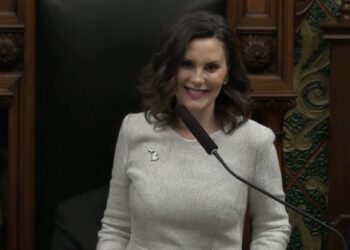WASHINGTON, D.C. (WZMQ) – The U.S. Supreme Court rejected constitutional challenges to the Indian Child Welfare Act, a federal law which plays a role in the placement of Native American children in foster or adoptive homes, CBS News reports.
The court ruled 7-2 in the case Haaland v. Brackeen, which is being called a victory for the Biden administration and several Native American tribes which defended the law.
In the case, a birth mother, foster and adoptive parents and the state of Texas argued the law exceeds federal authority, infringes state sovereignty and discriminates on the basis of race. They challenged the constitutionality of the law because it uses racial classifications which they prevented non-Native families from fostering or adopting Native children.
The goal of the Indian Child Welfare Act, which was enacted in 1978, is to keep Native American children connected to Native families. It prioritizes those families or Native institutions during foster care and adoption proceedings which involve Native children.
Justice Neil Gorsuch, who wrote a concurring opinion and was joined by Justice Sonia Sotomayor, praised Justice Amy Coney Barrett’s majority opinion. He said Congress has lawful authority to “secure the right of Indian parents to raise their families as they please; the right of Indian children to grow in their culture; and the right of Indian communities to resist fading into the twilight of history.”
Governor Gretchen Whitmer issued the following statement after the U.S. Supreme Court upheld a law setting federal requirements that apply to state child-custody proceedings involving a Native child and prioritizing placing such children with members of their extended family or in Tribal homes. Such placements are critical to keep Native children connected with their Tribes and traditions and to provide for the future of Native families and Tribes.
“I stand with Tribal Nations in celebrating today’s Supreme Court ruling in Haaland v. Brackeen as a win for Native children and families. In addition to recognizing the inherent sovereignty of Tribal Nations, this decision upholds important federal efforts to right the wrongs committed against Native families in the past and clears a path for us all to continue that work into the future,” said Governor Whitmer. “The State of Michigan has developed strong government to government relationships with the federally recognized Tribes that call Michigan home. We are focused on mutual progress through effective collaboration on issues like child welfare that make a real difference in people’s lives. Thanks to today’s ruling that brought together justices across the ideological spectrum, we can continue our partnership and keep getting things done in the best interests of children and families.”
Congress enacted the Indian Child Welfare Act (ICWA) in 1978 after finding that a high percentage of Native American families were broken up by the removal of their children through child-custody proceedings, who were then disproportionately placed in non-Native foster and adoptive homes and institutions.
“The Indian Child Welfare Act was enacted to preserve the culture, traditions, and values of our communities and allows for Tribal Nations to be consulted when it comes to the adoption and placement of our children,” said Jamie Stuck, President of United Tribes of Michigan and Chairperson of the Nottawaseppi Huron Band of the Potawatomi. “When Tribes are a part of the conversation, tribal children have a better chance to be placed in a safer home environment. The Haaland v. Brackeen Supreme Court decision keeps ICWA intact and affirms the sovereignty and self-determination of Tribal Governments.”
The Michigan Indian Family Preservation Act (MIFPA) was enacted by the State of Michigan on January 2, 2013. MIFPA strengthens, clarifies, and enhances federal ICWA implementation in Michigan courts and state child welfare services.









